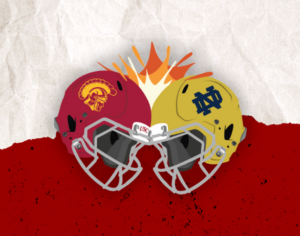Encuentra todo lo que necesitas saber en un solo lugar, incluyendo:
- Aspectos básicos de la compra de vivienda
- Opciones de préstamos hipotecarios
- Proceso de solicitud paso a paso
- Próximos pasos tras el cierre
¿Por qué comprar?
Ser propietario de una vivienda te ofrece ventajas fiscales, como la desgravación fiscal por comprar una vivienda por primera vez*. Es una forma inteligente de prepararse para el futuro.
¿Cómo puedo informarme sobre la propiedad de una vivienda?
La compra de vivienda viene con su propio lenguaje, que incluye términos como amortizar y escrow. Podemos ayudarte a descifrar el diálogo y a tomar decisiones de financiación con conocimiento de causa:
- Guía del comprador de vivienda. Este recurso gratuito abarca una serie de temas, desde las opciones de préstamo hasta el funcionamiento de las hipotecas, las comisiones y consejos para elegir al agente inmobiliario adecuado. Descarga tu guía hoy mismos.
- Seminarios sobre la compra de vivienda. Aprende los conceptos básicos de la financiación de viviendas en nuestros seminarios gratuitos. Nuestros expertos en préstamos hipotecarios hablan de opciones de compra como plazos, tipos fijos frente a tipos ajustables, pagos iniciales bajos y cómo hacer una oferta ganadora. Revisa las fechas de los próximos seminarios.
¿Por dónde empiezo?
- Comprueba su historial crediticio. Solicita una copia de tu informe crediticio y soluciona cualquier problema pendiente. Evaluamos las puntuaciones de las tres principales agencias de informes crediticios: Experian, Equifax y TransUnion.
- Determina cuánto puede pagar por una vivienda. La regla general: Busca viviendas que no cuesten más de tres a cinco veces tus ingresos familiares anuales (suponiendo un pago inicial del 20% y una carga de deuda moderada).
- Calcule los pagos de la hipoteca. Compara escenarios en función de tus ingresos. Ten en cuenta que los impuestos sobre la propiedad y el seguro de vivienda suelen influir en el pago mensual. Lo mismo ocurre con el seguro hipotecario privado (PMI), que necesitarás si tu pago inicial es inferior al 20%.
- Obtén una precalificación. Es la mejor manera de determinar cuánto dinero puedes pedir prestado y dentro de qué rango de precios debes mantenerte.
- Utiliza los servicios de un agente de bienes raíces. ¿Por qué navegar solo por las aguas de la compra de vivienda? Un agente de bienes raíces con licencia puede proporcionarte información valiosa y orientación. Y como socio de USC Credit Union, puedes aprovechar nuestro programa Right Move®, que ofrece una rebaja del 20% en la comisión.1
Términos clave
Tasa Efectiva Anual (APR): Tasas de interés hipotecario anual para tu préstamo, variable o no variable.
Relación Deuda-Ingresos (DTI): Porcentaje de los ingresos mensuales que destinas al pago mensual de tus deudas. Regla de oro: Mantener tu nivel de endeudamiento total por debajo del 36% de tus ingresos brutos mensuales.
Pago inicial: Pago inicial para la compra de una vivienda.
Gastos: Término genérico que engloba los gastos que normalmente cubre el comprador de la vivienda (a menudo negociables), como la tasación de la vivienda, el informe de solvencia del prestatario, la búsqueda del título, el abogado, los impuestos de transferencia, el registro de la escritura, los impuestos sobre la propiedad, etc.
Tasas de Interés: Porcentaje del importe del préstamo hipotecario que el prestamista cobra por pedir dinero prestado, normalmente en función de las condiciones actuales del mercado, la puntuación crediticia personal, el importe del pago inicial y la tasa de hipoteca.
Plazo del Préstamo: Período para pagar el saldo de la hipoteca. Los plazos más cortos suelen conllevar pagos mensuales más elevados, pero tasas de interés más bajas.
Pago Mensual de la Hipoteca: Cantidad que se paga cada mes por la hipoteca* y que se compone de:
- Capital. Cuanto más pague, más se reducirá el saldo pendiente de la hipoteca.
- Intereses. Parte que pagas a tu prestamista hipotecario por el uso de los fondos prestados.
- Impuestos. Parte que se destina a los impuestos sobre la propiedad que cobra el gobierno local.
- Seguros. Parte que se destina a pagar la cobertura del seguro de hogar o contra riesgos por pérdidas derivadas de daños a la propiedad.
Según la ubicación de su propiedad, el tipo de propiedad y el monto del préstamo, es posible que tenga otros gastos mensuales o anuales, como seguro hipotecario, seguro contra inundaciones o cuotas de la asociación de propietarios.
Cargo por Emisión: Comisión que reciben los prestamistas y corredores por supervisar el proceso del préstamo, desde el estado de la solicitud hasta su finalización, que incluye la preparación de documentos, los costes de suscripción y otras comisiones.
Puntos: Comisiones pagadas al prestamista hipotecario o al agente de préstamos. Un punto equivale al 1% del importe de la hipoteca.
PMI (Seguro hipotecario privado): Seguro que cubre a los prestatarios con un pago inicial inferior al 20% del valor de la vivienda. El PMI protege al prestamista hipotecario si el prestatario no devuelve el préstamo.
Dependiendo del importe del préstamo y del tipo y ubicación de la propiedad, puede tener otros gastos mensuales o anuales, como el seguro hipotecario, el seguro contra inundaciones o las cuotas de la comunidad de propietarios.
¿Cuánto puedo pedir prestado?
Utiliza nuestra calculadora de préstamos hipotecarios para estimar los pagos mensuales y probar diferentes escenarios en función de tus ingresos.
Antes de presentar la solicitud, debes comprender tu préstamo hipotecario. Estamos comprometidos a hacer que tu préstamo y el proceso de solicitud sean simples y directos. Comuníquete si tienes más preguntas.
Paso 1: Prepara lo esencial. Reúna y envíe copias legibles y completas de estos documentos de ingresos y activos lo antes posible.
Ingreso
- Talones de pago de los últimos 30 días de empleo
- Últimos dos años de formularios W-2 y/o 1099 para cada prestatario
- Últimos dos años de declaraciones de impuestos federales 1040
- Últimos dos años de declaraciones de impuestos comerciales federales y/o K1 (para prestatarios que trabajan por cuenta propia)
Activos
- Últimos dos meses de estados de cuenta bancarios, incluidos cheques, ahorros, mercado monetario, CD, carteras de acciones, etc.
- Estados de cuenta trimestrales o de los últimos dos meses para cuentas de jubilación
Paso 2: Inicie tu aplicación. Su asesor hipotecario de USC Credit Union hará un seguimiento y te pedirá la información financiera y de propiedad que has recopilado.
- Llámenos al (877) 670-5860, de lunes a viernes, de 9:00 a.m. a 5:00 p.m. PST
- Complete nuestro formulario de contacto para que un prestamista hipotecario se comunique con usted.
- Inicia tu precalificación y postulación en línea
Paso 3: Proporcione la documentación de respaldo. Con la documentación requerida en la mano, tu asesor hipotecario:
- Solicite un informe de crédito y solicite los documentos adicionales necesarios
- Proporcione documentos de divulgación importantes para que los revises, firmes y devuelvas, incluidos (entre otros):
- Estimación del préstamo que desglosa y estima los costos de cierre y muestra los términos del préstamo, el pago mensual, la Tasa Efectiva Anual (APR) y los costos de otorgar y cerrar el préstamo, incluidos los cargos financieros
- Aviso de Intención
- Verifique o complete el Formulario de autorización de retiro para cubrir la tasación y el informe de crédito
- Solicite cualquier información adicional, dependiendo de dónde se encuentre en el proceso de compra de su casa, que incluye:
- Contrato de compraventa
- Información del contrato de agente y depósito en garantía
- Información de contacto o estado de cuenta de la Asociación de propietarios de viviendas (HOA) para verificar las cuotas mensuales (solo condominios o casas adosadas)
Paso 4: Elija un prestamista que conoces y en quien confías. Con el equipo hipotecario de la USC Credit Union a tu lado, puedes sentirte seguro acerca de tu proceso de compra de vivienda por primera vez desde la solicitud hasta el cierre.
He presentado mi solicitud de hipoteca. ¿Ahora que? ¡Bien hecho! Completar una solicitud de hipoteca no es poca cosa. Ahora tu prestamista:
- Evalúe tu puntaje crediticio para respaldar su historial de pago de facturas y deudas a tiempo.
- Verifique tu empleo, ingresos e información financiera.
- Evalúe tu capacidad actual y futura para realizar pagos.
- Evalúe tus activos en efectivo, incluido el efectivo disponible, los ahorros y las inversiones.
- Solicite una valoración de la vivienda, seguro de título y certificación de inundaciones.
- Enviarte una lista de condiciones que debes cumplir antes de que puedas prepararte para cerrar tu préstamo.
- Emita una Carta de Compromiso con la aprobación final de tu préstamo hipotecario y los términos del préstamo. Nota: necesitarás un seguro de propietario de vivienda para cerrar tu préstamo. Obtenga cotizaciones competitivas de múltiples proveedores de seguros, incluidos Trojan Insurance Services.
Proceso de cierre. El cierre o “liquidación” es cuando usted firma los documentos finales de la hipoteca y la propiedad se transfiere legalmente a tu propiedad. Antes de tu cierre, recibirás las cifras finales de la transacción, incluidos los costos de cierre, los costos de depósito en garantía y el monto del pago inicial. Si el dinero se debe en el momento de la firma, querrás obtener un cheque de caja o una transferencia bancaria. Tu prestamista enviará los documentos de cierre a tu agente de cierre. El día de cierre, revise cuidadosamente los siguientes documentos con tu agente, luego fírmelos y fechéelos:
- Nota de hipoteca (tu contrato)
- Hipoteca o escritura de fideicomiso
- Divulgación de cierre final
- Afidávits y Declaraciones
- Declaración final de cierre
Consejos Importantes:
- Lea los documentos de cierre y revíselos con su agente de bienes raíces antes de la fecha de cierre para comprender todo lo que debes firmar. ¿Preguntas? ¡Preguntanos!
- Proporcione información precisa en tu solicitud de préstamo. Las discrepancias en tu historial crediticio o laboral o en los saldos actuales de tus cuentas bancarias podrían retrasar tu solicitud.
- Presente de inmediato cualquier documentación adicional que te piden.
- Considere la posibilidad de que un abogado revise los documentos de tu préstamo o asista al cierre contigo.
- No hagas compras grandes, no te endeudes más ni hagas depósitos o transferencias grandes que no estén relacionados con la compra de tu vivienda.
Vea la actividad de la cuenta, transfiera fondos, realice pagos y más. USC Credit Union facilita la administración de tu cuenta hipotecaria en línea.
Acceder a información detallada de la cuenta
- Ver el saldo, los pagos de capital e intereses, la tasa de interés actual y los detalles del depósito en garantía
- Obtenga datos completos de impuestos e intereses
Ver estados de cuenta en línea
Como miembro de USC Credit Union, recibe automáticamente estados de cuenta en línea. Si todavía recibes estados de cuenta por correo, házlo sin papel aquí. Los estados de cuenta en línea tienen la misma información y son más seguros que los estados de cuenta impresos.
Realizar Pagos
- Paga tu hipoteca desde una cuenta corriente o de ahorros en USC Credit Union u otra institución financiera
- Realiza pagos gratuitos el mismo día a tu cuenta hipotecaria o configure un pago único o un cronograma automático
- Acceda a nuestro proveedor de servicios de préstamos en línea las 24 horas del día, los 7 días de la semana para realizar pagos, imprimir cupones, ver el historial de préstamos y obtener declaraciones de préstamos actuales e información fiscal de fin de año 1098.
CONSEJO: No hagas compras grandes, no te endeudes más ni hagas depósitos o transferencias grandes que no estén relacionadas con tu préstamo hasta después del cierre.
Préstamos respaldados por el gobierno que ofrecen requisitos de pago inicial más bajos y estándares de crédito flexibles. Ideal para prestatarios de bajos ingresos, prestatarios por primera vez, DACA, ITIN y militares actualmente activos, veteranos y sus cónyuges sobrevivientes.
Beneficios:
- Pagos iniciales mínimos bajos y opciones de préstamo sin pago inicial
- Tasas de interés y costos de cierre más bajos
- Mayores relaciones de deuda a ingresos comparado a otros tipos de préstamos
Comprar una casa es emocionante y complejo. Cuente con nuestro equipo de profesionales en préstamos hipotecarios para guiarte a través de cada paso del proceso.1 Elaboramos una guía para ayudarte a comprar tu primera casa con confianza. Encuentre todo lo que necesitas saber en un solo lugar, incluyendo:
- Conceptos básicos de compra de vivienda y opciones de préstamo
- Proceso de solicitud paso a paso
- Próximos pasos posteriores al cierre
Opciones de Préstamos Hipotecario
Compara las características y los beneficios antes de elegir un préstamo hipotecario. Aprende más aquí.
| Quieres.. | El mejor préstamo para ti… | Funciona porque… |
|---|---|---|
| ¿Tienes los mismos pagos mensuales durante la vigencia del préstamo? | Tasa de interés fija |
|
| ¿Tienes pagos mensuales más bajos al comienzo de su préstamo? | Tasa de interés ajustable |
|
| ¿Comprar tu casa con un pago inicial más bajo? | Fija o ajustable |
|
| ¿Comprar una casa más grande? | Préstamo Jumbo (Fijo o Ajustable) |
|














